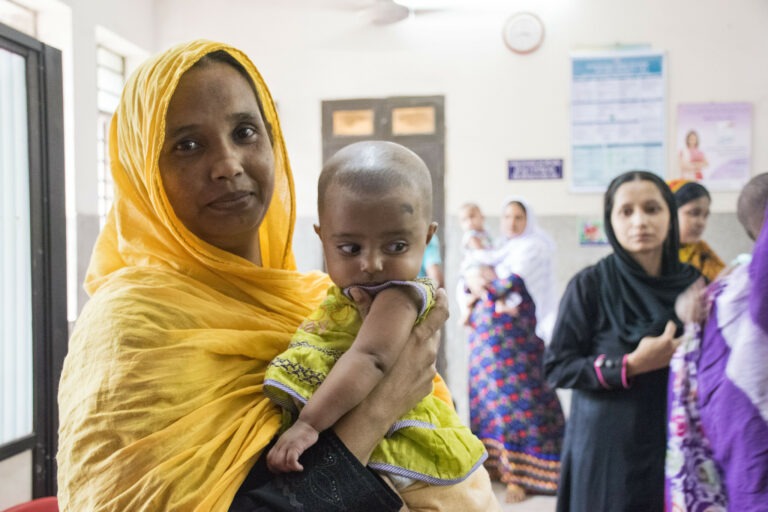| HEADLINE: |
|
Climate Change’s Adverse Effects on Children and Women in Bangladesh
Md Shafi Ullah
|
 Climate Change’s Adverse Effects on Children and Women in Bangladesh Children in Bangladesh face heightened risks due to climate change. Frequent flooding and cyclones disrupt access to schools, leading to prolonged interruptions in education. UNICEF estimates that millions of children have had their schooling affected by climate-related disasters, which can increase dropout rates, particularly among girls. Moreover, exposure to contaminated water during floods increases the prevalence of waterborne diseases like diarrhea, cholera, and typhoid, which disproportionately affect young children and contribute to high child mortality rates. Malnutrition is another pressing issue, as climate change reduces agricultural productivity by causing unpredictable rainfall, flooding, and salinity intrusion in arable lands. This results in food insecurity, especially for children who require adequate nutrition for healthy growth and development. Undernourished children face weakened immune systems and heightened vulnerability to diseases. Women, especially in rural and coastal communities, are also significantly impacted. They often have limited access to resources, healthcare, and education, which increases their vulnerability during climate crises. In disasters, women are more likely to face displacement, loss of livelihoods, and increased domestic responsibilities, including caring for sick family members. The physical and mental health of women is severely affected, with many experiencing anxiety, depression, and trauma due to loss and insecurity. Climate change also heightens the risk of gender-based violence. Displacement and economic instability increase vulnerabilities, and women and girls are at greater risk of exploitation, trafficking, and early marriage—practices often seen as coping mechanisms in times of crisis. Additionally, access to clean water becomes more difficult as salinity intrudes into freshwater sources. This places an extra burden on women and girls, who are typically responsible for collecting water, exposing them to physical strain and potential safety risks. Efforts by the Bangladesh government and international organizations focus on building resilience through climate-adaptive programs, education, and healthcare support tailored to vulnerable groups. However, experts emphasize the need for stronger policies integrating gender-sensitive approaches and child protection in climate action plans. In conclusion, climate change exacerbates existing inequalities, disproportionately threatening the health, education, and well-being of children and women in Bangladesh. Addressing these challenges requires urgent, inclusive strategies that empower these groups and build resilience to a changing climate.
|
Latest News
Popular News
Editor: Dr. Kazi Ertaza Hassan
All right reserved
South Western Media Group
© Daily Peoples Time
News & Commercial Office:93, Kazi Nazrul Islam Avenue, Kawran Bazar, Dhaka-1215
Phone: 88-02-41010087, 41010086, Fax: 88-02-41010085, Advertising: 88-02-41010084
E-mail: [email protected]








 Climate change poses severe risks to vulnerable populations worldwide,
Climate change poses severe risks to vulnerable populations worldwide,  Fakir Group Managing Director Fakir Aktaruzzaman has filed a
Fakir Group Managing Director Fakir Aktaruzzaman has filed a  A business delegation led by the President of FBCCI
A business delegation led by the President of FBCCI  Mohammad Ali Khokon on Sunday resigned from his position
Mohammad Ali Khokon on Sunday resigned from his position 

